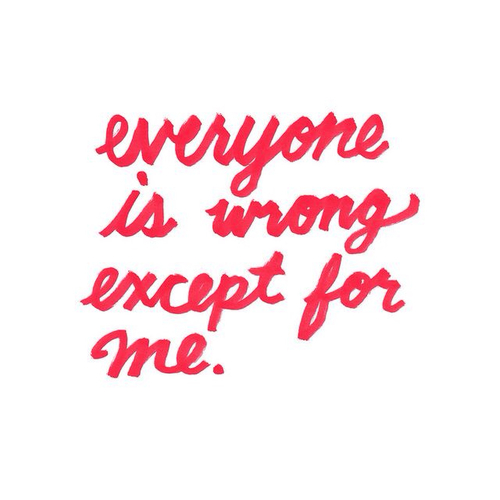Last year, when I saw Alison Bechdel talk, she introduced me to Stigler’s Law of Eponymy – “No rule is named after the person who came up with it.”
Stigler did not invent that law.
In the spirit of Stigler’s Law, allow me to introduce you to the system I’ve come up with to test how feminist a film is: The Percy Award. There’s only two criteria…
1) There is at least one woman with a plot that doesn’t revolve around: a man, femininity, beauty, or being a mother.
2) There are (roughly) at least as many female speaking roles as there are male speaking roles.
If a film accomplishes both of these, it gets The Percy Award. Let’s break it down:
1) There is at least one woman with a plot that doesn’t revolve around: a man, femininity, beauty, or being a mother.
Most of the time women are given same two roles, over and over again. They’re mothers or lovers – the virgin or the slut. They exist to dispense sex or nurturing, to be lusted after and fulfil societal expectations. They can always be described in relation to a male – “the love interest”, “the sister”, “the ex”.
Women in films exist to dispense sex or nurturing, to be lusted after and fulfil societal expectations. They can be described in relation to a male – “the love interest”, “the sister”, “the ex”.
And on the rare occasion that they do more than just prop up a male character’s plot, the fact that they don’t fit the typical feminine archetype will be their plot (think Merida in Brave).
To fulfil this criteria, the woman also needs to actually be given a storyline, which is pretty important*. We’re defining a “plot” here as “A story with a beginning, middle and end (in different scenes).” Megan stealing the dogs in Bridesmaids isn’t a “plot”, but Annie dealing with the closure of her bakery is (and while it involves a man, it certainly doesn’t revolve around one).
* Note that I’m not saying “main characters” or “central storylines” – that would eliminate every film with a single male protagonist, and a film can still be feminist while having one protagonist who is male.
2) There are (roughly) at least as many female speaking roles as there are male speaking roles.
Our population is made up of (roughly) 50% men and 50% women. You would expect representation in film to be roughly the same, but in 2013 only 30% of speaking roles were female, and only 15% of protagonists. The further back you go, the worse it gets.
As a writer, whenever I need a character to deliver a throwaway line or piece of information, my first instinct is always for that role to be filled by a man. Shop-keeper, hotel clerk, doctor – unless a character needs to be female, they’ll be a man.
This ties into the first criteria as well. If a writer sits down and asks themself “Okay, let’s put a woman in – what would a female plot be about?” then they’ll repeatedly draw from the same well. Men can have any plot in the world; women need to have a woman plot.
Male as the default is a dangerous and unhealthy attitude. You’ll see it all the time – if a character doesn’t have to be female, then they won’t be.
Also note – we’re not counting the number of lines, just whether or not they have lines at all. This is for the same reason that “roughly” is specified. You should be able to work out whether a film is deserving of the award without having to sit down and rewatch it with a pen and paper.
You’ll find that the vast majority of the time, it will quickly become obvious whether a film is going to come close.
In Bridesmaids, for example, female roles include: Annie, Lillian, Helen, Megan, Rita, Becca, Annie’s mum, and Rebel Wilson. Male roles include: the policeman, Lillian’s father, Jon Hamm, Annie’s boss, the fitness instructor, and Matt Lucas.
There are probably a few more scattered around, but Bridesmaids? Totally deserves The Percy Award.
Finding worthy films is extremely difficult. That’s why it’s not a “test” – it’s not a pass/fail system, and it’s not something that a movie can accomplish with one throwaway line (I love the Bechdel Test for looking at trends, but I just don’t think it’s the best standard for evaluating individual films).
Getting a Percy Award is an accomplishment – if a film manages to give a woman something to do outside of base gender expectations and it shows a roughly-equal representation of both genders, then that’s (sadly) a genuinely rare feat.
So let’s celebrate it. What films can you think of that deserve The Percy Award?
